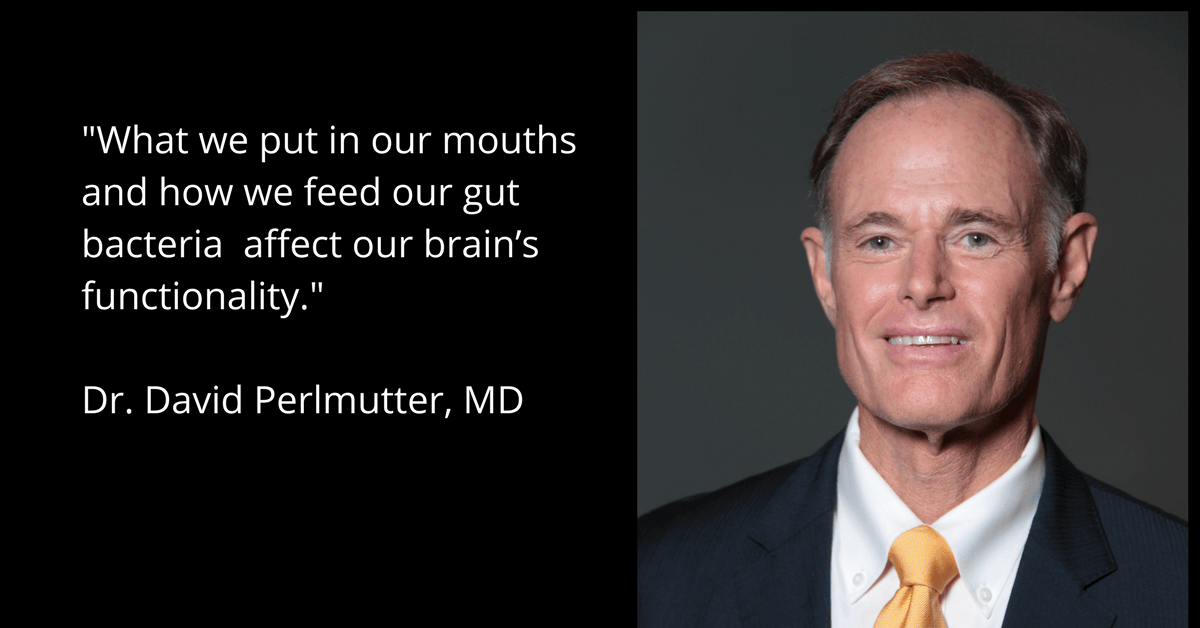Dr. Perlmutter is a renowned neurologist and author whose groundbreaking work focuses on the connection between diet, gut health, and brain function. His research has transformed the way we understand neurological conditions and the role nutrition plays in maintaining optimal brain health. In this article, we will explore his life, achievements, and contributions to the field of medicine.
As a leading authority in functional medicine, Dr. Perlmutter has dedicated his career to educating people about the importance of nutrition in preventing and managing chronic diseases. His work challenges conventional medical practices and highlights the power of lifestyle changes in promoting overall wellness.
This comprehensive guide will delve into Dr. Perlmutter's biography, his groundbreaking research, and practical advice for improving brain health. Whether you're a healthcare professional or someone interested in learning more about brain health, this article will provide valuable insights and actionable tips.
Read also:Unveiling The Truth Jimmy Uso Real Name And His Remarkable Journey
Table of Contents
- Biography of Dr. Perlmutter
- Key Achievements
- The Diet-Brain Connection
- Gut Health and Brain Function
- Best-Selling Books
- Latest Research Findings
- Nutrition Tips for Brain Health
- Lifestyle Changes for Better Health
- Criticism and Controversies
- Future Directions in Research
Biography of Dr. Perlmutter
Early Life and Education
David Perlmutter was born on June 11, 1955, in Brooklyn, New York. From an early age, he showed a keen interest in science and medicine. He graduated from the University of Miami School of Medicine in 1981 and later completed his residency in neurology at the University of Miami Jackson Memorial Hospital.
Dr. Perlmutter's journey into functional medicine began when he realized that traditional medical practices often failed to address the root causes of chronic diseases. This realization inspired him to explore alternative approaches to healthcare, emphasizing the importance of nutrition and lifestyle changes.
Professional Career
In 1984, Dr. Perlmutter founded the Perlmutter Health Center in Naples, Florida, where he continues to practice as a board-certified neurologist. Over the years, he has treated thousands of patients and gained a reputation for his innovative approach to treating neurological disorders.
Dr. Perlmutter is also a fellow of the American College of Nutrition and serves as a member of the American Academy of Neurology. His dedication to advancing the field of medicine has earned him numerous accolades and a loyal following among patients and healthcare professionals alike.
Key Achievements
Dr. Perlmutter's contributions to the field of medicine extend beyond his clinical practice. He has authored several best-selling books, conducted groundbreaking research, and delivered lectures worldwide. Some of his notable achievements include:
- Receiving the Linus Pauling Award for his contributions to functional medicine.
- Being named one of the "Top 100 Functional Medicine Practitioners" by Functional Medicine University.
- Appearing on popular media outlets such as The Dr. Oz Show, CNN, and PBS.
The Diet-Brain Connection
One of Dr. Perlmutter's most significant contributions to the field of medicine is his research on the relationship between diet and brain health. His work challenges the conventional wisdom that genetics alone determine our susceptibility to neurological disorders.
Read also:Kim Muniz The Rising Star Of The Entertainment World
Dr. Perlmutter argues that dietary choices play a crucial role in maintaining optimal brain function. By adopting a nutrient-dense, low-inflammatory diet, individuals can reduce their risk of developing conditions such as Alzheimer's disease, Parkinson's disease, and multiple sclerosis.
Gut Health and Brain Function
The Gut-Brain Axis
The gut-brain axis refers to the complex communication network between the digestive system and the brain. Dr. Perlmutter's research highlights the importance of maintaining a healthy gut microbiome to support brain health.
Probiotics, prebiotics, and fiber-rich foods are essential components of a brain-boosting diet. These nutrients promote the growth of beneficial gut bacteria, which produce neurotransmitters and influence mood, memory, and cognitive function.
Practical Tips for Improving Gut Health
- Incorporate fermented foods like sauerkraut, kimchi, and kefir into your diet.
- Limit processed foods and sugar, which can disrupt the balance of gut bacteria.
- Consume a variety of fruits, vegetables, and whole grains to provide essential nutrients for gut health.
Best-Selling Books
Dr. Perlmutter is a prolific author whose books have sold millions of copies worldwide. His publications provide readers with actionable advice for improving brain health and preventing chronic diseases. Some of his most popular books include:
- "Grain Brain: The Surprising Truth About Wheat, Carbs, and Sugar – Your Brain's Silent Killers"
- "Brain Maker: The Power of Gut Microbes to Heal and Protect Your Brain for Life"
- "The Better Brain Book: The Best Tools for Improving Memory and Sharpness and Preventing Aging of the Brain"
Latest Research Findings
Dr. Perlmutter's research continues to evolve as new discoveries emerge in the fields of neuroscience and nutrition. Recent studies have explored the role of ketones, intermittent fasting, and circadian rhythms in brain health.
Emerging evidence suggests that a ketogenic diet, which emphasizes high-fat, low-carbohydrate intake, may have protective effects against neurodegenerative diseases. Intermittent fasting and time-restricted eating have also been shown to improve cognitive function and reduce inflammation.
Nutrition Tips for Brain Health
Adopting a brain-healthy diet is one of the most effective ways to support long-term cognitive function. Dr. Perlmutter recommends the following nutrition tips:
- Increase your intake of healthy fats, such as omega-3 fatty acids found in fatty fish, nuts, and seeds.
- Choose whole, unprocessed foods over refined carbohydrates and sugar.
- Incorporate antioxidant-rich foods like berries, dark chocolate, and green tea into your daily routine.
Lifestyle Changes for Better Health
In addition to dietary modifications, lifestyle changes can significantly impact brain health. Dr. Perlmutter emphasizes the importance of:
- Getting adequate sleep to allow the brain to repair and rejuvenate.
- Engaging in regular physical activity to boost circulation and reduce stress.
- Practicing mindfulness and meditation to improve mental clarity and emotional well-being.
Criticism and Controversies
While Dr. Perlmutter's work has garnered widespread acclaim, it has also faced criticism from some members of the medical community. Critics argue that his recommendations may oversimplify complex health issues and lack sufficient scientific evidence.
However, Dr. Perlmutter continues to defend his approach, emphasizing the importance of personalized medicine and empowering individuals to take control of their health. He encourages readers to consult with healthcare professionals before making significant changes to their diet or lifestyle.
Future Directions in Research
Dr. Perlmutter remains committed to advancing the field of brain health and nutrition. Future research will likely focus on:
- Exploring the potential benefits of personalized nutrition based on genetic testing.
- Investigating the role of emerging technologies, such as artificial intelligence, in predicting and preventing neurological disorders.
- Expanding access to functional medicine practices for underserved populations.
Conclusion
Dr. Perlmutter's groundbreaking work has transformed the way we think about brain health and nutrition. By emphasizing the importance of diet, gut health, and lifestyle changes, he has empowered millions of people to take proactive steps toward preventing chronic diseases.
We encourage you to share this article with others who may benefit from Dr. Perlmutter's insights. For more information on brain health and nutrition, explore our other articles or consult with a healthcare professional. Together, we can create a healthier future for ourselves and future generations.
Data sources for this article include peer-reviewed journals, interviews with Dr. Perlmutter, and his published works. For further reading, consider exploring the references cited in his books and research papers.


